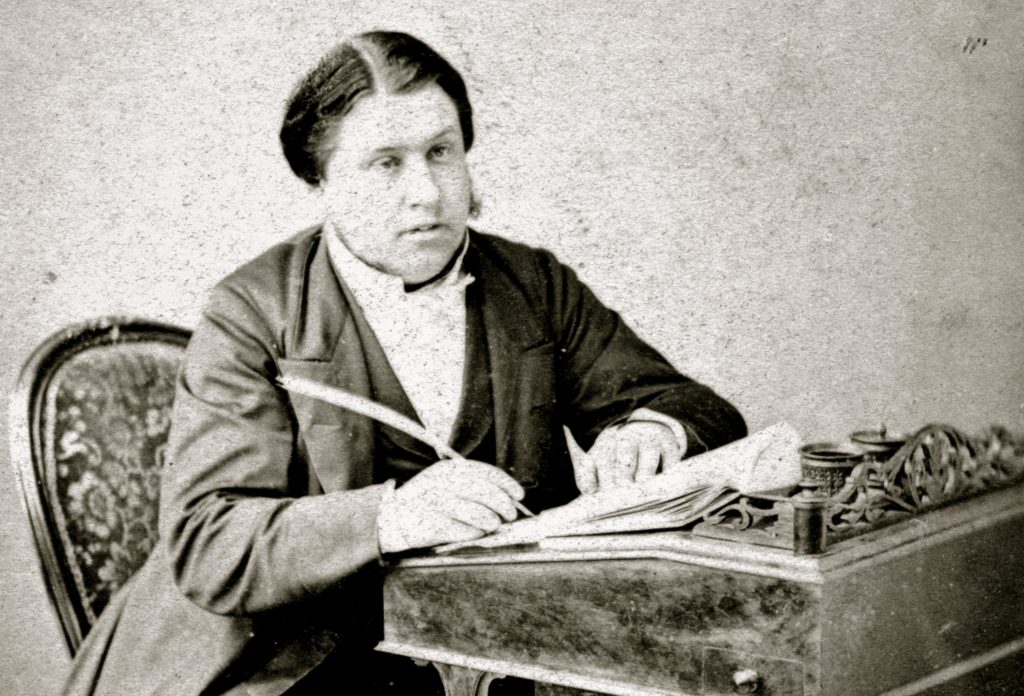
Charles Spurgeon is known for his preaching, but did you know the "Prince of Preachers" also wrote hymns? Although he didn't use an organ or musical instruments during worship at the Metropolitan Tabernacle, Spurgeon had an undeniable love of singing Psalms and Christian hymns.
“Heartless hymns are insults to heaven.” – Charles Spurgeon
The first time I visited The Spurgeon’s Library at Midwestern Baptist Theological Seminary, I gravitated toward Spurgeon's sizeable hymnal collection on the wall. These are hymns that remind us, not only of Spurgeon's vast knowledge of hymnology but also of his intentional focus on how to incorporate hymns in worship.
But what balance did Spurgeon strike between the use of hymns and the singing of Psalms? And moreover, what hymns did Spurgeon write with his own pen?
Spurgeon's Hymnal
Over the course of Spurgeon’s ministry, he encountered a unique challenge in his congregation’s musical worship. Essentially, he believed there were too many hymnals being used during worship gatherings. So what did Spurgeon do? He collected what he believed were the best hymns and published them in Our Own Hymn Book.
Logos Bible Software provides a great historical summary for the context of this publication:
"For years, the congregation at the Metropolitan Tabernacle used two hymnals—one compiled by John Rippon and the other by Isaac Watts. The confusion caused by two hymnals prompted the church to compile this new hymnal during the years of Charles Spurgeon. Our Own Hymn Book reflects the sentiments of the church and Spurgeon’s influence. It contains the texts of hundreds of hymns, plus metrical arrangements of all 150 Psalms."
Our Own Hymn Book centralized Spurgeon's most loved hymns. As a songwriter and hymn re-tuner, this hymnal has become a continual interest of mine. While there is so much to be learned from the various sections of this hymnal, one particular section, "The Spirit of The Psalms," reveals how Spurgeon inflected his own voice as a songwriter. When I discovered this part, I felt compelled to set Spurgeon's hymns to new music and came to appreciate Spurgeon's own gifting as a songwriter.
Spurgeon as Songwriter
Spurgeon’s songwriting stands in contrast to other popular hymnists like Anne Steele or Isaac Watts. His use of language was less poetic and more exact, much like his preaching. As I've set Spurgeon's hymns to music, I've come to appreciate this gospel-forward, simple approach. It has much to teach the church about the motivation behind our songs and the way we sing them.
"Fine music without devotion is but a splendid garment upon a corpse." – Charles Spurgeon
During the recording process, Spurgeon’s hymn on Psalm 39 became my personal favorite. Spurgeon's awareness of life as a vanishing mist poignantly speaks to the reality we all experience as Christians. We are pulled between two worlds: the already and the not yet. Like a mist that soon vanishes, our lives are fleeting yet filled with anticipation for the eternity that dawns with the return of the Son.
Verse 1:
Behold, O Lord my days are made
A mere handbreadth at the most
Ere yet ‘tis noon my flower must fade,
And I give up the ghost
Verse 5:
Though I’m exiled from glory’s land,
Yet not from glory’s King;
My God is ever near at hand,
And therefore I will sing.
Spurgeon also wrote a hymn about Psalm 70. In it, he reveals our dependency on God in the midst of difficult circumstances, suffering, and loss.
Verse 1:
Make haste, O God, my soul to bless!
My help and my deliv’rer Thou;
Make haste, for I’m in deep distress,
My case is urgent; help me now.
Verse 4:
Make haste, O God, and hear my cries;
Then with the souls who seek thy face,
And those who Thy salvation prize,
I’ll magnify Thy matchless grace.
Portable Theology: Making the Most of Spurgeon’s Hymnody
Spurgeon's preaching will never be lost on us. Yet his hymnody is still a bourgening field of untapped treasure. There is so much work yet to be done on this fascinating facet of Spurgeon's creative life and my hope is that Spurgeon's hymns will leave a lasting impact on our own congregational worship. This is the primary reason why I’ve turned my attention to Spurgeon during this season of my life and focused my songwriting on setting his old hymns to new music.
Music is portable theology. Hymns form habits in us that connect our heads and hearts. Spurgeon's hymns showcase the preacher in new light. He was not only interested in preaching the gospel, but also in singing the gospel. Because Spurgeon was both theological and pastoral, it doesn't surprise me how intentional he was in selecting and writing hymns that his congregation could sing. Even today, Spurgeon's Tabernacle in London continues to use a version of Our Own Hymn Book during worship.
May each of us follow Spurgeon's example as we see the Savior in our congregational singing.
About the Author

Scott A. Gayer is the Creative Director for The Well in Boulder, Colorado, a church in the Acts 29 Network. He has lead musical worship for over 15 years and is releasing an album entitled, “Spurgeon’s Spirit of the Psalms.” He releases music under a collective called Forgotten Voyage. Follow Scott on Twitter @scottgayer and Instagram @sgayer.